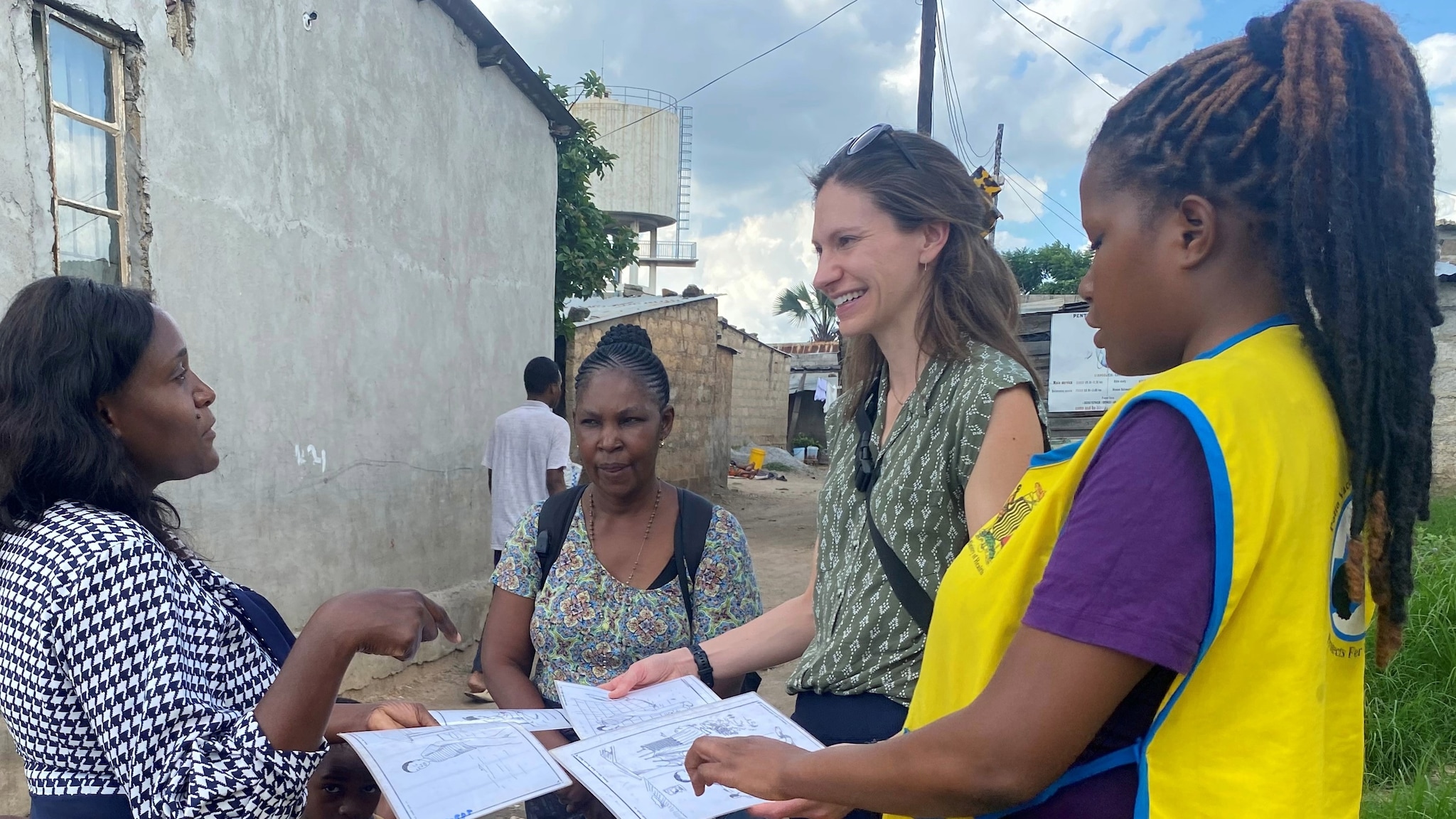At a glance
- During Zambia's largest cholera outbreak in over 20 years, CDC engaged with affected communities to understand their experiences.
- CDC and partners developed assessment tools, trained local teams, improved healthcare access, and enhanced treatment center care.
- Efforts strengthened Zambia’s ability to respond to future cholera outbreaks and contribute to global health security worldwide.
The Challenge

In 2023, during the largest cholera outbreak in Zambia in over twenty years, CDC global health experts responded swiftly to the crisis. As part of this effort, risk communicators from CDC’s Division of Global Health Protection were on the ground and sprung into action. Their role was to engage with local communities to explore their experiences with cholera, in order to better understand why the outbreak persisted despite ongoing promotion of prevention measures.
CDC's Efforts
Collaborating with the Zambian National Public Health Institute, Ministry of Health, UNICEF, and UKHSA, CDC played a pivotal role in developing tools and training local teams on conducting rapid qualitative assessments to understand drivers of the disease's continued spread. After completing a hands-on training with CDC and colleagues from UNICEF and UKHSA, the team of newly trained data-collectors ventured into densely populated cholera hotspot areas, engaging with the families of cholera victims and survivors.
Impact
By listening attentively to the communities' experiences, CDC gathered insights and shared their findings with public health officials and key stakeholders who used these findings to inform and improve response activities, including improved access to transport to healthcare facilities, rollout of a cash transfer program to decrease the financial burden on affected communities, and improving care in treatment centers.
Public health officials also used the information to refine health education materials and messages, including simplifying the national key messages for stopping cholera, to the “Three Cs”:
- Clean and safe water
- Clean hands
- Early care
This simplified messaging was quickly adopted by response leadership and partner organizations and became a cornerstone of the Zambia’s cholera health promotion efforts.
Broader Implications
The collaborative efforts in Zambia had far-reaching implications beyond addressing the immediate crisis. They not only built the capacity of community workers to effectively address such public health crises but also helped strengthen health security within the country and worldwide.
